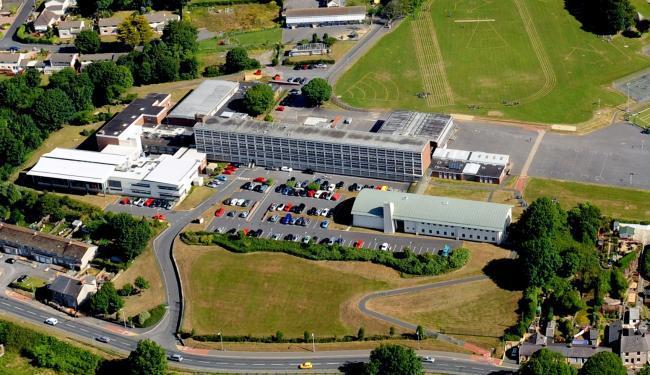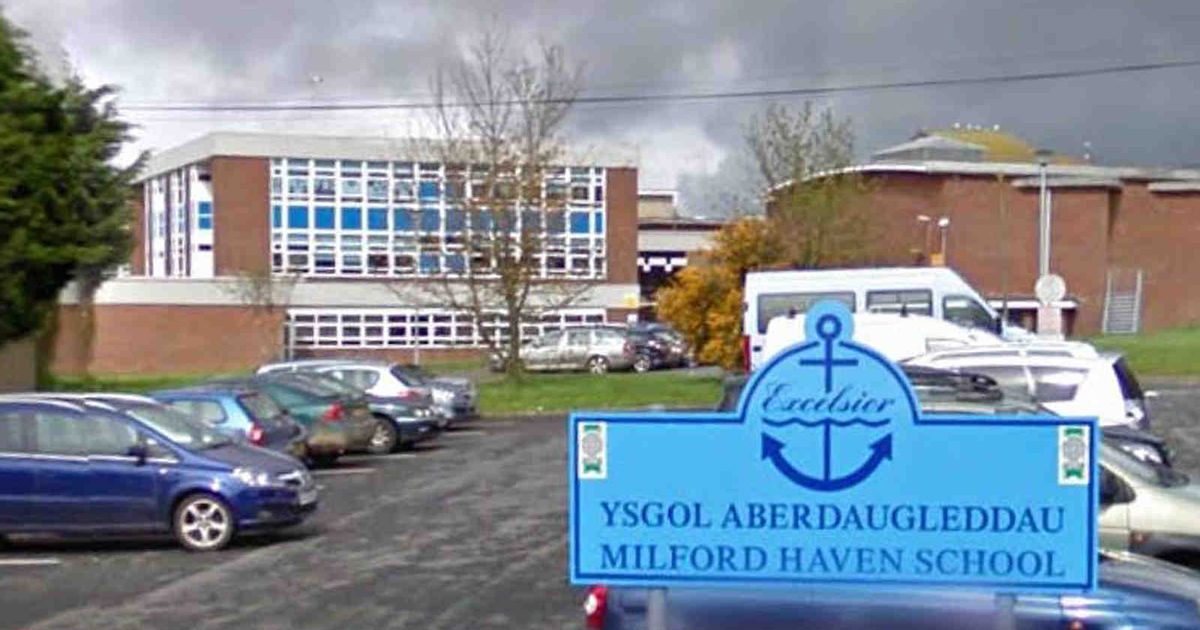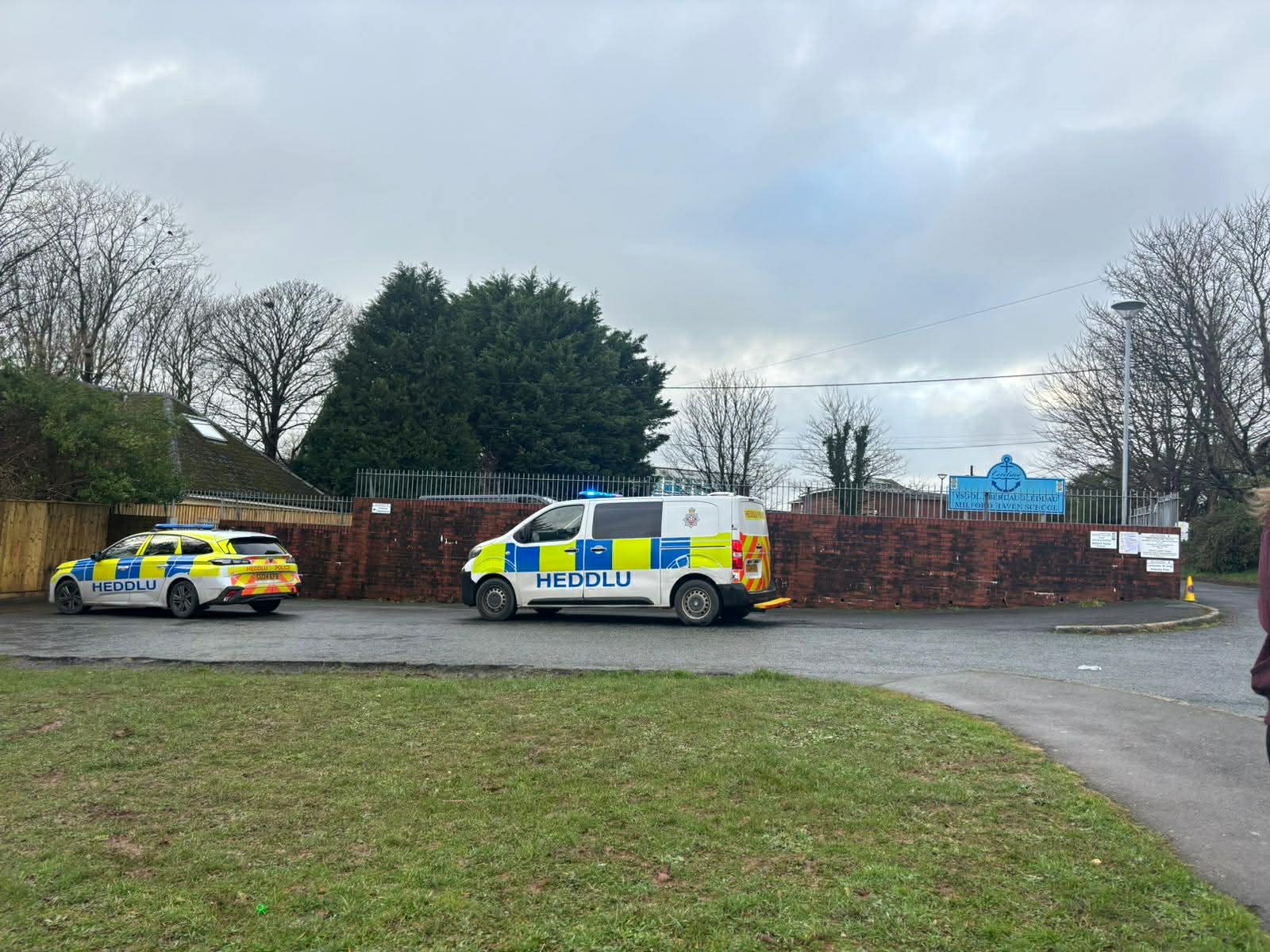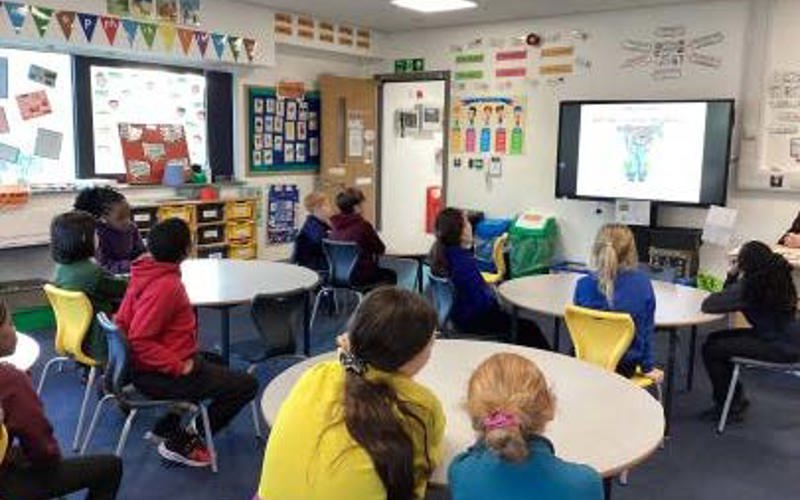Education
Tenby’s Greenhill School hailed ‘a place to be proud of’

A PEMBROKESHIRE school, which once faced the bleak possibility of potential closure, is now a school to be proud of, county councillors heard.
Tenby’s Ysgol Greenhill School was taken out of special measures last year following an inspection by Estyn.
The 879-pupil school was placed under the most serious statutory category by the education inspection body in December 2019 after it was stated that teaching was ‘not sufficiently effective’.
Under the leadership of headteacher David Haynes, who was appointed in September 2021, a positive report resulted from Estyn – Her Majesty’s Chief Inspector of Education and Training in Wales.
Following that, a Pembrokeshire County Council Schools Scrutiny Panel visit to the school was made in May, members of the council’s Schools and Learning Overview and Scrutiny Committee heard.
A report for members stated: “It was clear that the deputy headteacher, learners and teaching staff had remained committed to the school despite the dark times which had been experienced.
“It was reassuring to see that the perception of the school was improving with clear teaching and learning aspirations being supported by sound plans and learners expressing that they now felt content and safe within the school.
“The panel appreciated the candour of current areas of concern raised by both the learners and the leadership team and whilst noting the ongoing severe funding pressures, expressed that they would do all within their power to support, where appropriate, plans for remedial works to be undertaken, in line with the authority’s capital programme.
“The panel was reassured to learn that the Governing Body and Director of Education had displayed strong support but also critical challenge throughout the improvement journey and panel members expressed genuine respect for the difficult conversations held with the school, particularly in September 2021, when closure of the school was needing to be seriously considered.
“The panel was confident that the components put in place would ensure continuous improvement for the school, particularly in relation to the support partnership with [Swansea-based] Bishop Gore School and the self-evaluation methods which had been embedded.
“Recognition of personal and professional development was expressed by the panel, and it was felt that progression of teaching staff into leadership roles was vital for the robustness of education within the county.”
In its recommendations, the report stated: “The panel noted that a plethora of resources were not poured into the school and that the stripped back arrangements appeared to be successful in terms of school improvement.
“This required an honest assessment within the school of the extent of the challenges which lay ahead. The panel felt that this model of support should be considered for schools improvement at other schools.”
Former pupil Cllr Alistair Cameron said: “Greenhill has a growing reputation in the area; to be blunt it wasn’t fantastic a few years ago, we can all learn lessons for the future.
“The answer to this is not putting in lots of resources from outside but about the staff and students working together.”
Cllr Sam Skyrme-Blackhall, also a member of the school governors, said: “It’s been a bumpy few years, with Covid put into the mix as well; prior to Covid there was very much a cloud over it. The feeling was: ‘What on earth is going on at Greenhill?’.”
She said there was a different environment now: “When you walk in the school there’s a real sense of happiness now, you wanted to show us how good the school is again.”
Former head prefect Amelia Faletau said: “The improvements have just been absolutely immense during my time in Greenhill; we don’t have the best building in the world, but we do our best.
“The ethos has improved so much; I hope that what we’ve achieved continues and prospers in coming years. This school is something that everyone should take pride in, I’m very proud of Greenhill, especially what it is now.”
Members agreed to support the report recommendations.
Crime
Teacher discharged as Milford School to reopen Monday after serious assault

Deputy head praises ‘calm and professional’ staff and pupils during lockdown
A TEACHER injured in a serious incident at Milford Haven Comprehensive School has been discharged from hospital as the school confirmed it will reopen on Monday with extra support in place.
A 15-year-old boy remains in police custody on suspicion of attempted murder following the alleged assault at around 3:20pm on Thursday (Feb 5).
Officers from Dyfed-Powys Police were called to the school after reports that a pupil had assaulted a member of staff while brandishing a weapon. The site was placed into immediate lockdown, with all pupils later sent home safely.
In a fresh statement issued late on Friday afternoon, school leaders and the council thanked staff, pupils and emergency services for their response.
Deputy headteacher Daryl John said: “On behalf of the school staff and governors, I would like to thank and praise all of the staff and the small number of pupils who remained on site. They all conducted themselves with professionalism and were calm throughout.
“We are extremely grateful to the emergency services for their rapid and effective response. Our heartfelt best wishes go out to our colleague, and we look forward to their full and speedy recovery.”
Jon Harvey, leader of Pembrokeshire County Council, said he was pleased the school would reopen next week.
He added: “If there are any pupils who have been affected by the incident and require additional support, please ask teachers or staff who will be able to help with well-being provision.
“Lockdowns such as that implemented on Thursday afternoon are routinely rehearsed by schools so that on the very rare occasions where they are needed, everyone knows what to do.
“As a Local Authority we will of course continue to support Milford Haven School in whatever way possible following this awful incident.”
Earlier, the council and Hywel Dda University Health Board confirmed specialist support would be available for staff and learners, and advised anyone needing urgent mental health help to call NHS 111 and press option two.
Local MP Henry Tufnell and teaching unions including NASUWT and National Education Union have also expressed concern and support for the school community.
Parents described the town as subdued, with one telling The Herald it felt “like a lockdown morning” with no children walking to school.
Police enquiries are ongoing.
Crime
Teacher discharged as police step back from Milford Haven school after assault

Teenager remains in custody as school closes and patrols increased to reassure community
POLICE have confirmed they are no longer stationed at Milford Haven School after a teacher was assaulted by a pupil on Thursday afternoon (Feb 5), as the injured member of staff has now been discharged from hospital.
In a joint statement issued by Dyfed-Powys Police, Pembrokeshire County Council and Hywel Dda University Health Board, Superintendent Chris Neve said swift action had been taken to protect pupils and staff.
He said: “Police are no longer in attendance at Milford Haven Comprehensive School, following a report of the assault of a teacher at approx. 3.20pm this afternoon.
“I would like to reassure parents, and the wider community, that swift action was taken to both safeguard pupils and teachers, and to trace the suspect as soon as this report was received.
“The teacher has now been discharged from hospital and is being supported by specialist officers. All pupils at the location were safe, and all returned home unharmed. A 15-year-old boy has been arrested and remains in police custody as enquiries continue.
“You will see a higher than usual police presence in the area over the coming days – these will be dedicated patrols to provide further reassurance.”
The injured teacher was earlier taken to hospital by road ambulance.
An immediate lockdown was put in place at the school while emergency services responded. Most pupils had already left for the day, but those still on site were secured inside classrooms and offices as a precaution.
School closed on Friday
Council leader Cllr Jon Harvey said the school would be closed to pupils on Friday to allow support and safety measures to continue.
He said: “We would like to thank staff and pupils at Milford Haven School for implementing a swift and effective lockdown in response to this incident.
“While the school will be closed to pupils tomorrow, if there are any learners who require additional support they are welcome to attend and there will also be support for staff on site.
“We’d like to reassure learners and parents, along with the wider community, that all measures to ensure safety are being taken.”
The health board added that anyone needing urgent mental health support can call NHS 111 and press option 2 for 24-hour assistance.
National spotlight
The incident has drawn national media attention.
BBC News broadcast live from the school gates during its Ten O’Clock News bulletin, while ITV News and several national titles also covered developments.
Journalists from a number of UK outlets, including The Sun, contacted The Herald as events unfolded, with several Welsh and national publishers using photographs first taken by Herald reporters.
Residents said the scale of coverage was unprecedented for the normally quiet port town.
Police enquiries are continuing.
Photo caption:
Police outside Milford Haven School following Thursday’s incident (Pics: Herald).
Education
Family warns school move could harm child with ultra-rare condition

As closure looms, campaigners say Meidrim pupils thrive in ‘caring community’ as council consultation raises fears for vulnerable learners
A SMALL village primary school at the heart of rural Carmarthenshire is at the centre of a growing campaign to prevent its closure, with supporters warning that vulnerable children could suffer serious consequences if it shuts.

The Cymdeithas yr Iaith has backed efforts to secure the future of Ysgol Bentre Gymraeg Meidrim, describing small rural schools as “caring communities” that provide vital stability for children with additional needs.
At the centre of the case is pupil Tommy Webber, who lives with Bloom Syndrome — an ultra-rare genetic condition which causes complex medical issues and additional learning needs. He is believed to be the only child in Wales diagnosed with the condition.
Medical professionals have advised the school that continuity, routine and trusted relationships are essential for Tommy’s wellbeing. Any disruption — including changing schools, longer daily travel or unfamiliar staff — could have a negative impact on his health, emotional security and educational progress.
Supporters say the small, close-knit nature of Meidrim has allowed staff to provide consistent, personalised care that would be difficult to replicate elsewhere.

However, Carmarthenshire County Council opened a statutory consultation on Thursday (Jan 16) on proposals to close the school, prompting concern from parents, campaigners and language groups.
Speaking on behalf of the Carmarthen region, Cymdeithas yr Iaith representative Sioned Elin said Tommy’s experience reflects a wider truth about the role of small rural schools.
“Tommy’s story shows how a small school can be a safe haven for children with additional needs,” she said. “Education here is genuinely child-centred, and pupils are supported as part of a caring Welsh-speaking community.
“In the same school there is also a deaf pupil, and the other children have learned some sign language so they can communicate with her. That demonstrates how this kind of environment benefits every child, not just one.”
She added that decisions about closures should not be based solely on budgets or pupil numbers.
“The impact cannot be measured purely in financial terms. The question must be whether any alternative provision can truly meet the needs of children who rely on stability and familiarity every day.”
Campaigners argue that losing the school would not only affect education standards but would also weaken the Welsh language and the social fabric of the village.
A supporting letter from hospital clinicians has been submitted as part of the consultation process.
Residents are now urging the council to recognise the wider value of small rural schools before making a final decision.
-

 Crime2 days ago
Crime2 days agoSex offender jailed after living off grid in Pembrokeshire and refusing to register
-

 Health1 day ago
Health1 day agoHealth board targets rise in steroid and gym drug use across west Wales
-

 News3 days ago
News3 days agoPrincess of Wales visits historic Pembrokeshire woollen mill
-

 Crime1 day ago
Crime1 day agoTeacher injured and teenager arrested for attempted murder at Milford Haven School
-

 Health5 days ago
Health5 days agoDoctor struck off after sexual misconduct findings at Withybush Hospital
-

 News5 days ago
News5 days agoHerald journalists to feature in true-crime documentary on local lockdown murder
-

 Crime3 days ago
Crime3 days agoHakin man’s appeal delayed again as Crown Court seeks guidance on insurance law
-

 Education6 days ago
Education6 days agoIndustry insight helps marine cadets chart career course

























